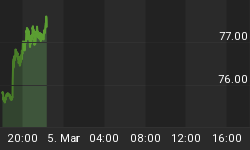This week, the leaders and finance ministers of the 20 most economically important nations, or G-20, will convene in London to develop coordinated policies that they hope will prevent a worldwide depression. The leaders will also consider greater transnational regulatory oversight of the financial industry and the future of the U.S. dollar as the world's 'reserve' currency. By any reckoning, this meeting will be the most important international economic conference since Bretton Woods in 1944, or the Great Powers economic meeting in Rome in 1922.
All the leaders are now acknowledging what was formerly in dispute: that the world is facing a severe recession. But as is evident by the pre-meeting media blitz, the London G-20 will reveal a split of the group into two opposing camps.
On one hand we have the Americans and the British who have been calling most loudly for a 'team' approach, in which all nations 'pull together' in support for spending-based remedies. To some extent we are indeed all in it together. The shock currently felt by the American consumer is has translated into massive losses for exporting countries around the world. But this does not mean that all favor massive government spending along the lines envisioned by Pennsylvania Avenue and Downing Street.
In fact, many of these countries are leading the other side of the debate. The Europeans, led by Germany with its inbred fear of hyperinflation, have balked at the Anglo super-stimulus approach. The continental powers all maintain socialized medical care, comprehensive social security and unemployment benefits. They can therefore afford to accept high levels of unemployment before they face riots and insurrection in the street. The United States has no such cushion.
The German view is that recession is the natural cure for excessive inflation and growth. They see that the world economy is overleveraged, based on the reckless injection of cheap dollars under Bush-Greenspan. They believe that their economies will not return to health unless deleveraging is allowed to take place. These leaders understand that deleveraging will create massive unemployment, but they are prepared to accept it in order to allow their economies to restructure in a competitive manner. In short, they will accept short-term pain for long-term gain.
The Anglo-Saxons, led by America and socialist Britain, believe that the solution is to spend their way out of recession. Even Lord Keynes would balk at their non-solution of sending good money after bad in such an overleveraged environment. The Anglo-Saxons know they are falling off a cliff, but they are trying to break the fall with additional capital borrowed from the other developed and developing economies. One must assume all this is being done to help political leaders survive the next election cycle, because the long-term consequences will be an even larger crisis -- and even the collapse of the dollar.
If the German-led Europeans are joined by the Chinese and Australians, the opposition to a global spending binge will be impossible to overcome. A fundamental split will then develop in the recovery and restructuring rates of the world's economies. The forces of decoupling will be reinforced, and the Anglo-Saxon economies will exit from the center stage of the global economic order.
Such an outcome would also raise to a crescendo the current calls for a gold-linked global reserve currency to replace the U.S. dollar. If that were to occur, exchange controls would surely be imposed to stop a panic run out of the Anglo-Saxon currencies.
Investors should watch the G-20 meeting with very great care and look behind the inevitable, bland 'groupthink' final communiqué of superficial cooperation. While this class of grade-A economies looks harmonious, the Anglo-Saxons are most afraid of the impending D's: deleveraging and decoupling.
For a more in-depth analysis of our financial problems and the inherent dangers they pose for the U.S. economy and U.S. dollar, read Peter Schiff's newest book "The Little Book of Bull Moves in Bear Markets." Click here to order your copy now.
For a look back at how Peter predicted our current problems read the 2007 bestseller "Crash Proof: How to Profit from the Coming Economic Collapse." Click here to order a copy today.
More importantly, don't wait for reality to set in. Protect your wealth and preserve your purchasing power before it's too late. Discover the best way to buy gold at www.goldyoucanfold.com. Download Euro Pacific's free Special Report, "Peter Schiff's Five Favorite Investment Choices for the Next Five Years", at http://www.europac.net/reports.asp. Subscribe to our free, on-line investment newsletter, "The Global Investor" at http://www.europac.net/newsletter/newsletter.asp. And now watch the latest episode of Peter's new video blog, The Schiff Report, at http://www.europac.net/videoblog.asp.















